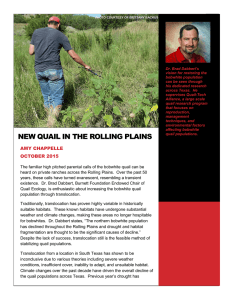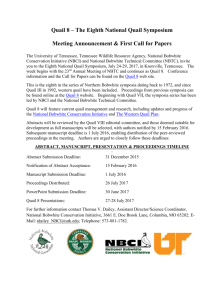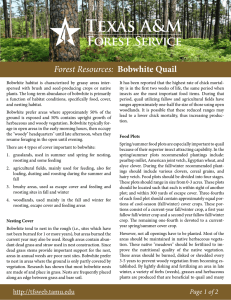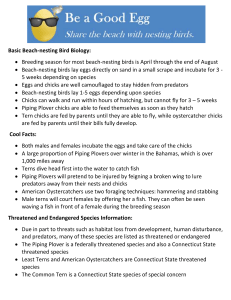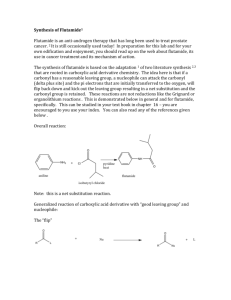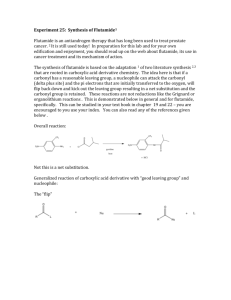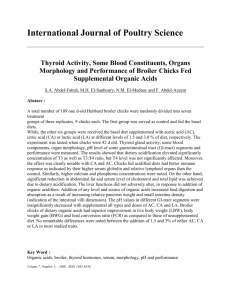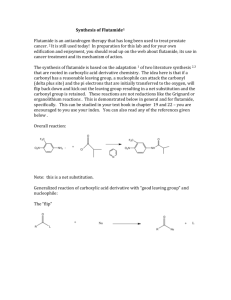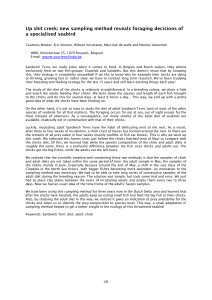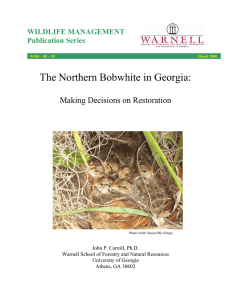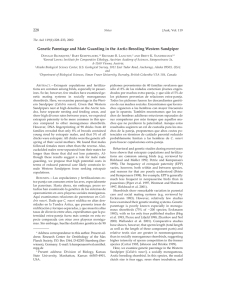Department of Ecology and Evolutionary Biology, University of Arizona, Tucson,... 85721; and Buenos Aires National Wildlife Refuge, P.O. Box 109,... Carol Masters Vleck and Steve J. Dobrott
advertisement
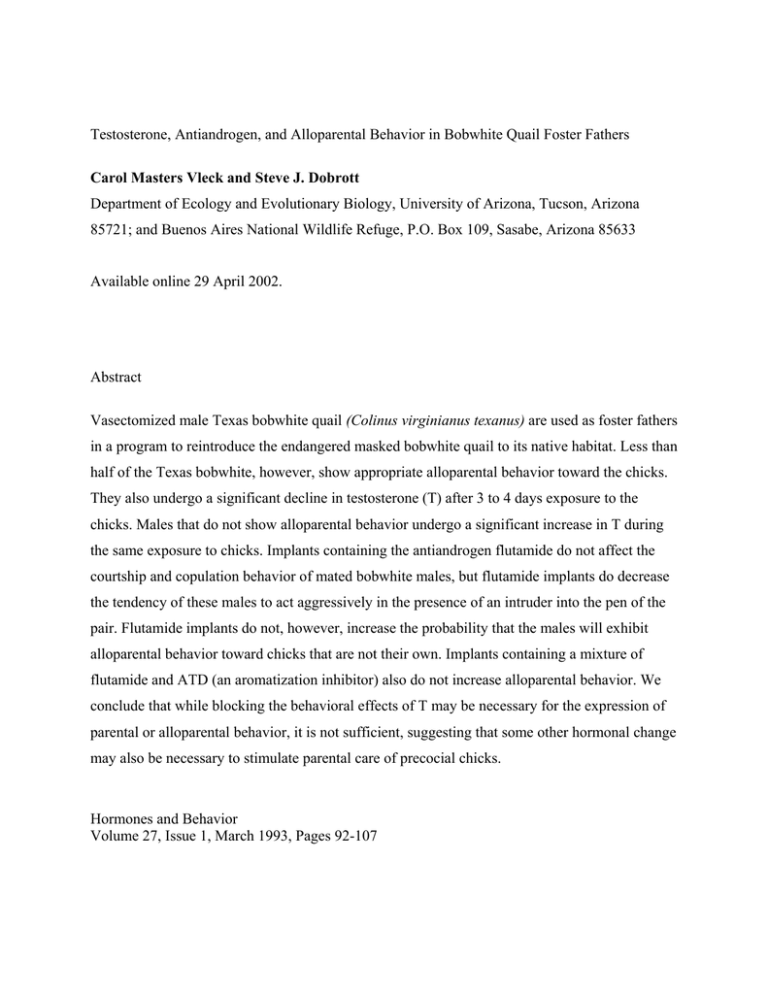
Testosterone, Antiandrogen, and Alloparental Behavior in Bobwhite Quail Foster Fathers Carol Masters Vleck and Steve J. Dobrott Department of Ecology and Evolutionary Biology, University of Arizona, Tucson, Arizona 85721; and Buenos Aires National Wildlife Refuge, P.O. Box 109, Sasabe, Arizona 85633 Available online 29 April 2002. Abstract Vasectomized male Texas bobwhite quail (Colinus virginianus texanus) are used as foster fathers in a program to reintroduce the endangered masked bobwhite quail to its native habitat. Less than half of the Texas bobwhite, however, show appropriate alloparental behavior toward the chicks. They also undergo a significant decline in testosterone (T) after 3 to 4 days exposure to the chicks. Males that do not show alloparental behavior undergo a significant increase in T during the same exposure to chicks. Implants containing the antiandrogen flutamide do not affect the courtship and copulation behavior of mated bobwhite males, but flutamide implants do decrease the tendency of these males to act aggressively in the presence of an intruder into the pen of the pair. Flutamide implants do not, however, increase the probability that the males will exhibit alloparental behavior toward chicks that are not their own. Implants containing a mixture of flutamide and ATD (an aromatization inhibitor) also do not increase alloparental behavior. We conclude that while blocking the behavioral effects of T may be necessary for the expression of parental or alloparental behavior, it is not sufficient, suggesting that some other hormonal change may also be necessary to stimulate parental care of precocial chicks. Hormones and Behavior Volume 27, Issue 1, March 1993, Pages 92-107
